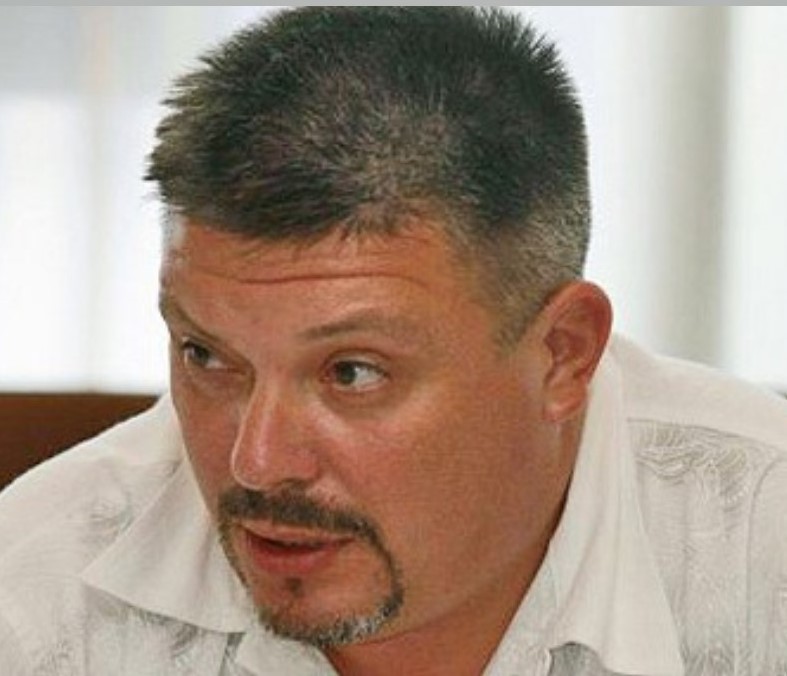Russia uses ‘treason’ charges to jail renowned Ukrainian academic for 20 more years

51-year-old Dmytro Shtyblikov should have been released on 10 November 2021, after five years in Russian captivity. Instead, Russia’s FSB came up with new charges, as surreal and implausible as the original ‘Crimean saboteur’ accusation used to imprison him, fellow military analyst Oleksiy Bessarabov and Volodymyr Dudka, a retired naval captain. This time, the Ukrainian is accused by the Russian regime that invaded Ukrainian Crimea under Russian law of ‘state treason’. Having made all kinds of grandiose claims back in November 2016, while showing only a Ukrainian flag, a fake business card and sports airguns, this time almost nothing is known about the charges. Nor will it be, since the ‘trial’, of Shtyblikov and Oleksandr Obloha, now beginning at the Southern District Military Court in Rostov, will be behind closed doors.
Russia began arresting Ukrainians in occupied Crimea, and claiming that they were ‘spies’ or ‘saboteurs’ less than three months after its invasion and annexation. Such prosecutions are an easy way for the FSB to get ‘good statistics on fighting crime’, and also serve to push the image of Ukraine and Ukrainians as ‘enemies’, seeking to hurt other Crimeans, and of Russia and its FSB as thwarting such attempts.
Both Shtyblikov and Bessarabov were friends and colleagues, working as military analysts for the Nomos Centre, a Ukrainian non-governmental think tank on research into geopolitical issues and Euro-Atlantic Cooperation concerning the Black Sea region. Both wrote for, and were on the editorial board of, the journalist Black Sea Security, and were well-known beyond Ukraine. The two were friendly also with Dudka, and shared with him a former naval background.
The Russian FSB first reported the new arrests on 10 November 2016. No names were given, with it claimed only that “members of a sabotage-terrorist group of the central department of Ukraine’s Ministry of Defence” had been detained. This ‘group’ had, supposedly, been planning to carry out acts of sabotage on military and other infrastructure in Crimea and it was asserted that the FSB had removed “very powerful explosive devices, weapons and ammunition, special communications devices and other significant evidence of criminal activities, including plans of the sites for the intended acts of sabotage”.
With such supposed discoveries, it was unclear why the FSB did not show any of this, but instead produced a video of the search of Shtyblikov’s flat. The camera lingered over the Ukrainian flag hanging on the wall, a business card purportedly belonging to Dmytro Yarosh, former head of ‘Right Sector’, and ‘weapons’ which sports fans immediately identified as airguns which Styblikov used in the game Airsoft (Strike Ball). The ‘business card’ in question had already aroused mirth and multiple Internet memes back in 2014 when Russian propaganda television triumphantly displayed it, claiming it had been found in the gutted wreck of a car which Ukrainians supposedly attacked. A little later, Russian state TV showed excerpts of ‘confessions’ given by Shtyblikov and Bessarabov.
At that stage, none of the men had had access to an independent lawyer. Shtyblikov was designated the role of ‘ringleader’ and prevented from seeing a proper lawyer at all. We know from the accounts given by the other men (and from those of the vast majority of political prisoners), once able to see a proper lawyer, just what forms of savage torture were used to obtain ‘confessions’. In Shtyblikov’s case, his family believe that threats were used against them to get him to ‘cooperate’. He eventually agreed to plead guilty to the charges of ‘planning sabotage on the instructions of Ukraine’s Military Intelligence, and illegally purchasing and possessing ammunition and explosives. He was sentenced, on 16 November 2017, to five years’ maximum security imprisonment and a steep 200 thousand rouble fine, after a ‘trial’ (under presiding judge Gennady Vladimirovich Nikitin) that took all of 50 minutes. The sentence was significantly lower than the horrific 14 years that both Bessarabov and Dudka received.
The charge of ‘state treason’ (under Article 275 of the Russian criminal code) was publicly reported in December 2020, although Shtyblikov’s family learned that he had been moved to the Lefortovo Prison in Moscow in August 2020. Although Shtyblikov is now represented by Dmitry Dinze, lawyer for several Ukrainian political prisoners, including filmmaker Oleh Sentsov, Dinze cannot reveal very much since the case is classified as ‘top secret’. He has, however, confirmed that the charge is of ‘treason in the form of spying’, with it claimed that Shtyblikov gathered secret information. The second person, Oleksandr Obloha, is seemingly also a former military man and a friend of Shtyblikov’s. It seems the possible sentence of 12-20 years would not take the five years already spent imprisoned into account.
For details about the reasons why the first ‘trial’ was clearly politically motivated, and about related arrests, see:
Russia wanted a new ‘Crimean saboteur trial’, so they looked around for three Ukrainians
Addresses for letters to Oleksiy Bessarabov and Volodymyr Dudka can be found at the above link. Please keep checking here, as an address for Dmytro will be given as soon as it becomes available.





